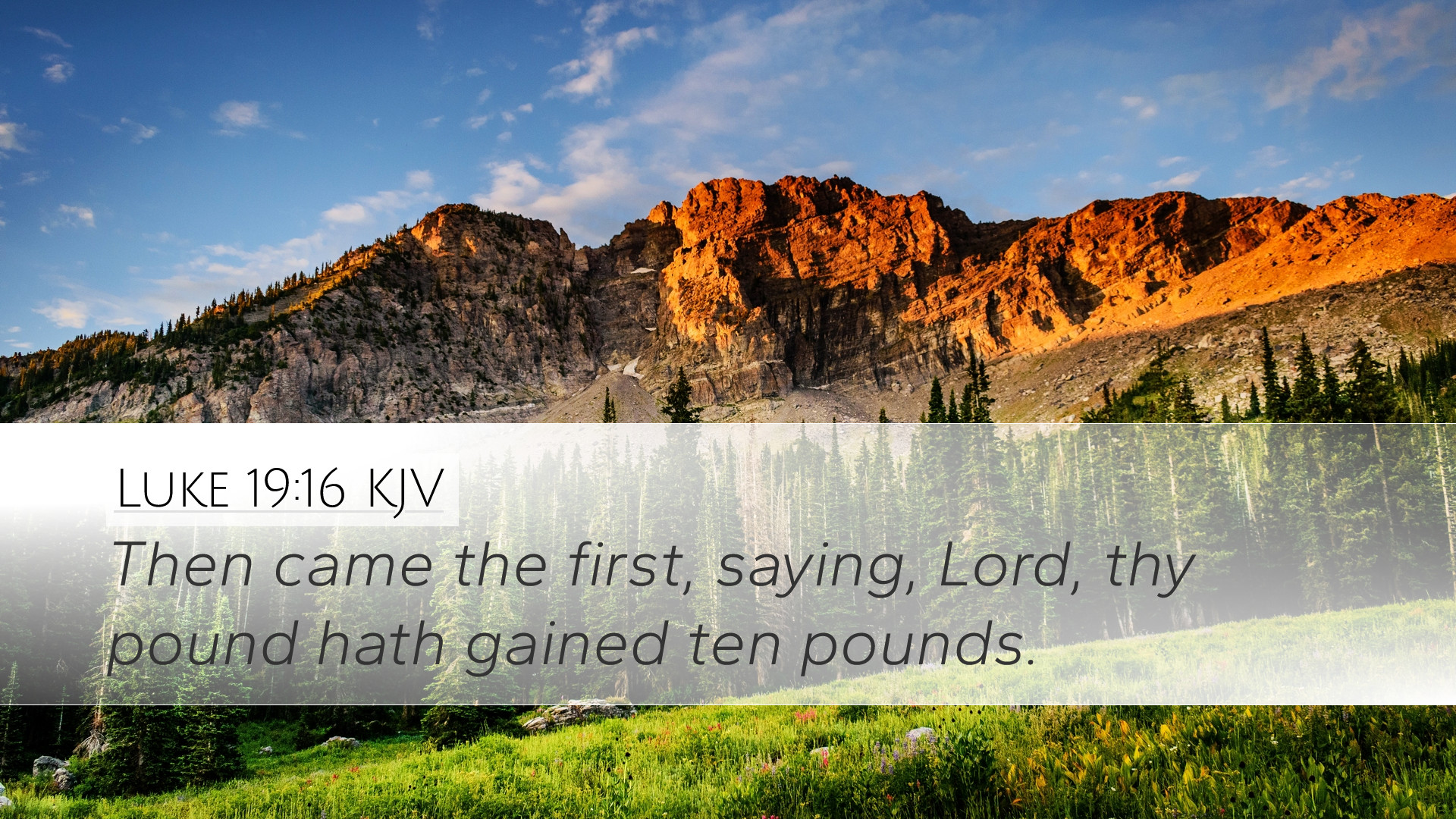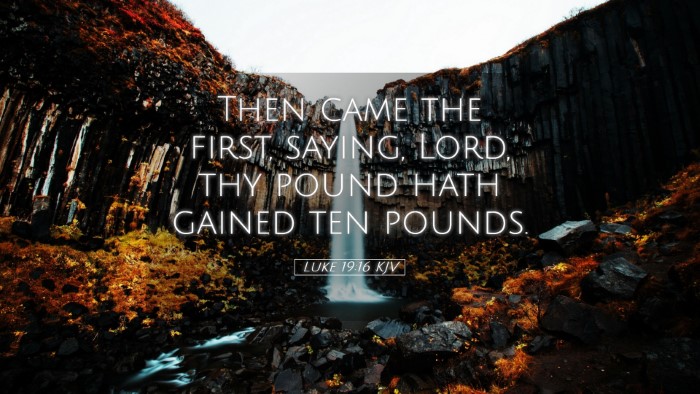Commentary on Luke 19:16
Verse: "The first came saying, ‘Master, your mina has earned ten minas more.’" (Luke 19:16, NKJV)
Introduction
This verse is part of the Parable of the Ten Minas, which illustrates the principles of stewardship and accountability in the Kingdom of God. Jesus teaches His disciples about the importance of using God-given resources wisely, as well as the expectation of return on those resources. The context of this parable is set just prior to Jesus' entry into Jerusalem, indicating the seriousness of His message to His followers.
Exegesis of Luke 19:16
In this verse, we see a servant coming to his master to report on the results of his stewardship over the mina entrusted to him. The mina—a significant sum of money—represents the gifts and opportunities given to each believer by God.
Insights from Matthew Henry
Matthew Henry highlights the servant's diligence in working with the mina. He emphasizes the servant's active role in increasing the master's holdings, which reflects a believer's responsibility in the Kingdom. Henry comments that the fruitful outcome indicates the servant's faithfulness and the blessing that follows faithful service. He writes:
"The diligent servant will be rewarded; he that is faithful in little will be made ruler over much."
Insights from Albert Barnes
Albert Barnes notes the contrasting attitudes of servants in the parable. He focuses on the idea that the successful servant acknowledges the master's authority and responds to it with fruitful labor. Barnes expands on the notion of accountability before God, stating:
"Every man shall give an account to God of the use made of his gifts."
Barnes also emphasizes the principle of measuring success not by the quantity of resources but by the faithfulness in using what one has been given. The response of the servant with ten minas exemplifies the return God desires from His servants.
Insights from Adam Clarke
Adam Clarke provides a thorough exegesis on the nature of the mina itself, offering historical and cultural insight into how it served as a valuable asset in that era. Clarke proposes that the mina is not just a test of ability but a divine calling to action:
"The mina represents the gifts of grace, and those who improve them will inevitably gain a reward."
Clarke further discusses the differentiation between the outcomes of the servants and how it is reflective of differing levels of motivation, diligence, and commitment to the task assigned by the master—Jesus. His commentary details the implications for readers today in their relationships with God’s gifts.
Theological Reflections
The essence of this verse and the larger parable is grounded in the understanding of stewardship under God’s Kingdom. The investments and returns of the servants symbolize the spiritual growth expected from believers as they await the return of Christ. Here are several key theological reflections for further consideration:
- The Implications of Stewardship: Stewards are accountable for the gifts they receive. This verse calls believers to actively engage with their gifts rather than bury them in neglect.
- The Nature of Reward: The increase in the minas symbolizes the eternal rewards awaiting those who faithfully serve God. The notion of being entrusted with more signifies spiritual maturity and readiness for greater responsibility in the Kingdom.
- Faithfulness Over Success: It is essential to recognize that success in the Kingdom is not defined by comparative measures but by one’s faithfulness in execution.
Practical Application and Conclusion
This verse serves as a poignant reminder for individuals to evaluate their lives in light of God’s calling. The question for believers becomes: how are we using the resources, talents, and opportunities God has provided? As pastors, students, and scholars reflect on this verse, it encourages an examination of priorities, actions, and heart motives.
In conclusion, Luke 19:16 calls for introspection regarding stewardship. The faithful servant exemplifies the heart of a believer responding to God’s grace with both diligence and fruitfulness. As the Church stands on the precipice of new opportunities and challenges, may believers step forth with the heart and commitment exemplified by the servant in this parable, understanding that God’s Kingdom is furthered through faithful stewardship.


